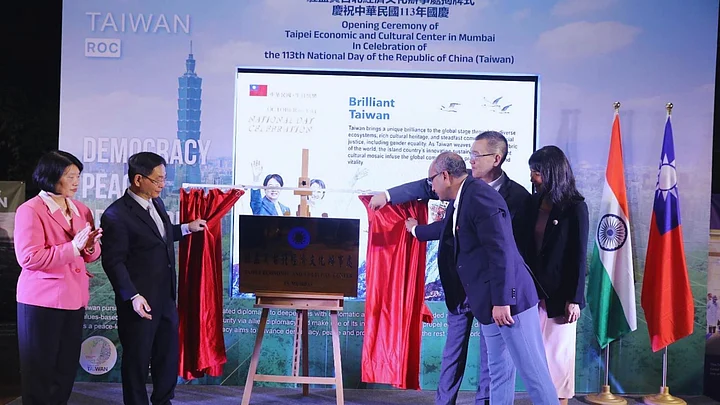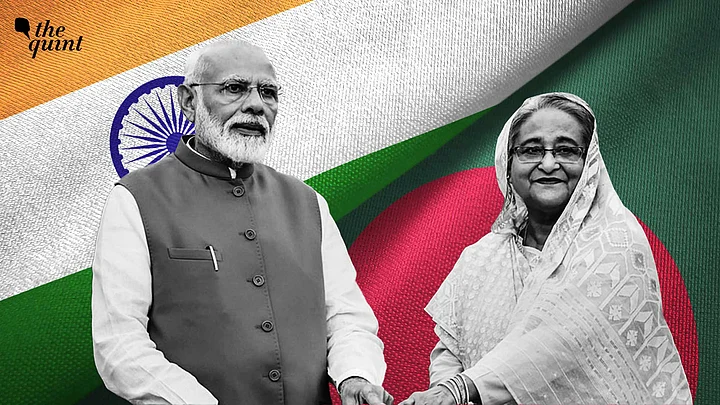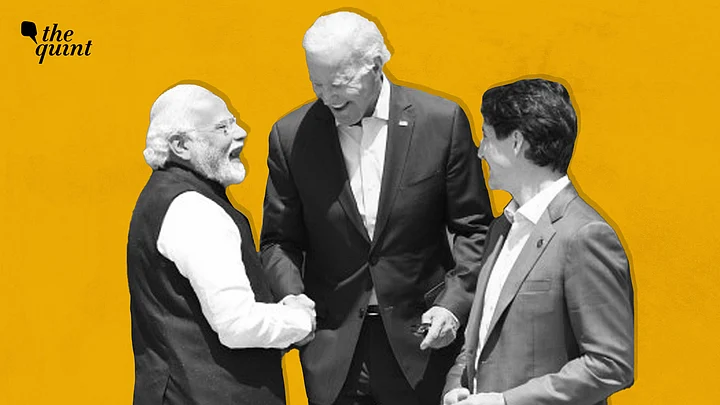With the conclusion of an agreement between India and China on patrolling rights in Depsang and Demchok, deliberations are rife as to whether this signals the normalisation of the bilateral relationship overall. It is important to note, however, that there still exist ‘red line’ issues for a territorially aggressive China, that India is likely to continue engaging with, as necessary. And the most prominent issue, in this regard, is the ‘Taiwan question’.
While the conclusion of the India-China patrolling agreement creates room for a semblance of stability in the otherwise tense ties, in the same period, India has also welcomed a third representative office from Taiwan in Mumbai. The diplomatic feat was commemorated at an event on 16 October 2024, alongside the celebrations held for Taiwan’s 113th National Day in Mumbai.
With the opening of this ‘Taiwan Economic and Culture Centre’, India has demonstrated commitment to deepen engagement with Taiwan, despite China’s continued effort to undermine the island’s international space for a diplomatic manoeuvre.
Even beyond the opening of the representative office, this year, India and Taiwan have witnessed significant developments in ties, starting with the conclusion of an MoU to enable ease of labour mobility from India to Taiwan. Subsequently, when Prime Minister Narendra Modi was inaugurated in June, Taiwanese President Lai Ching-te floated his congratulatory message.
In response, PM Modi affirmed commitment to closer economic and technological ties with the island. And most recently, on October 25, India hosted the Taiwanese chip giant Nvidia’s CEO Jensen Huang at an AI Summit in Mumbai. There, he committed to multiplying the firm’s AI Compute infrastructure deployment in India by 20 times, as compared to 2023.
This is not to say there has been no uncertainty in the economic and technological relationship. If one looks at the overall trade numbers, there has been a decline of 2.7% in FY 2023-24 as compared to the previous year. Similarly, even though India is Taiwan’s 16th largest trade partner, as an import source, it ranks at 25.
The potential lies in increasing Indian exports of basic consumer agri-products to Taiwan, where the trade basket signals prospects for growth. For example, in 2021, Taiwan imported US$ 117 million worth of cotton from the world in total, but from India, the number stood at a meagre US$ 9 million. In that FY, India’s total export of uncarded and uncombed cotton to the world was a whopping US$ 2682 million. Tea and sesamum seed trade display similar dynamics.
Could comparative price advantages, issues of quality, or tariff and non-tariff barriers be reasons why the full potential of India’s exports to Taiwan remains unrealised? It is hard to say.
In July this year, the two sides did conclude a ‘Mutual Recognition Agreement’ for each others’ organic products. While in principle, it does boost the possibility of greater exports, its main advantage lies in enabling markets on both sides to reduce compliance costs by avoiding dual certifications.
In technological cooperation, the Foxconn-Vedanta semiconductor deal going belly up in July 2023 was a demoralising development. However, in 2024, businesses on the two sides have made greater strides, and a definitive agreement between India’s Tata Electronics and Taiwan’s Powerchip Semiconductor Manufacturing Corporation (PSMC) was concluded in September. It brightens the possibility of developing domestic chip fabrication capabilities in India.
But looking beyond the US$ 11 billion investment in the facility and the promise of the creation of 20,000 direct and indirect jobs, the need for caution exists. While the requisite engineering talent does exist in India, a mismatch in the requirements of labour overall may waver operational outcomes. Physical infrastructure, too, shall require continued investment and inspection.
If the project is successful, however, it will be a major win for Taiwan’s ambitions to stay competitive in the mature node space against China. This is given that India provides both labour cost advantages, and heightened government support for such facilities, which perhaps other locations such as Japan or South Korea may not offer. For India, it shall also lead to greater integration with vital mature node value chains globally.
Diplomatically, the ‘China challenge’ impacts both India and Taiwan. When the Mumbai TECC was inaugurated, Chinese Foreign Ministry spokesperson Mao Ning announced that Beijing had lodged firm protests with Delhi. She further clarified that any nation keeping diplomatic relations with the mainland, and yet establishing a Taiwanese representative office internally violates the ‘One China principle’.
However, India’s commitment to the principle is evident in its willingness to negotiate and conclude an equilibrium with China, without necessarily giving up on its strategic space to fulfil its domestic interests. The patrolling agreement concluded between India and China on 21 October sets a new normal in the relationship, in that it allows for diplomatic communication between the two sides, without squaring the circle and doing away with structural tensions. It hence becomes vital for India to not lose a democratic partner in Taiwan, and for the two sides to commit to mutual development through strategic autonomy.
(Anushka Saxena is a Staff Research Analyst with the Indo-Pacific Studies Programme at the Takshashila Institution, Bengaluru.)
(At The Quint, we question everything. Play an active role in shaping our journalism by becoming a member today.)



